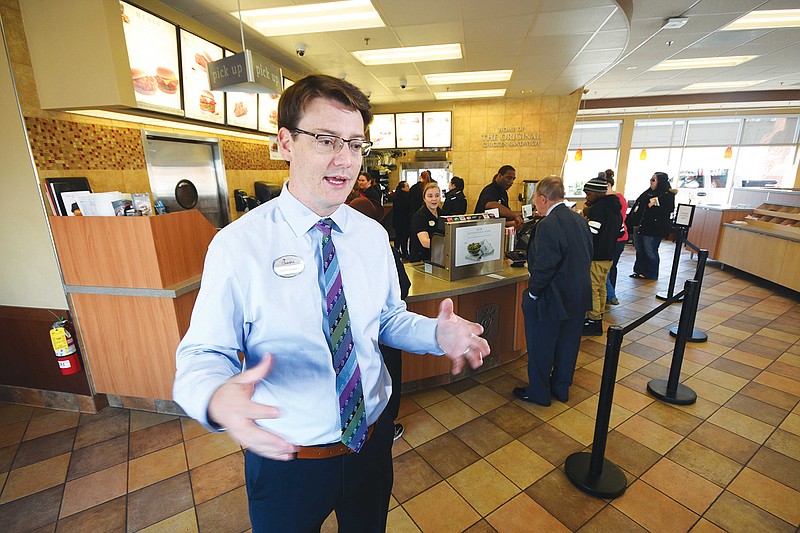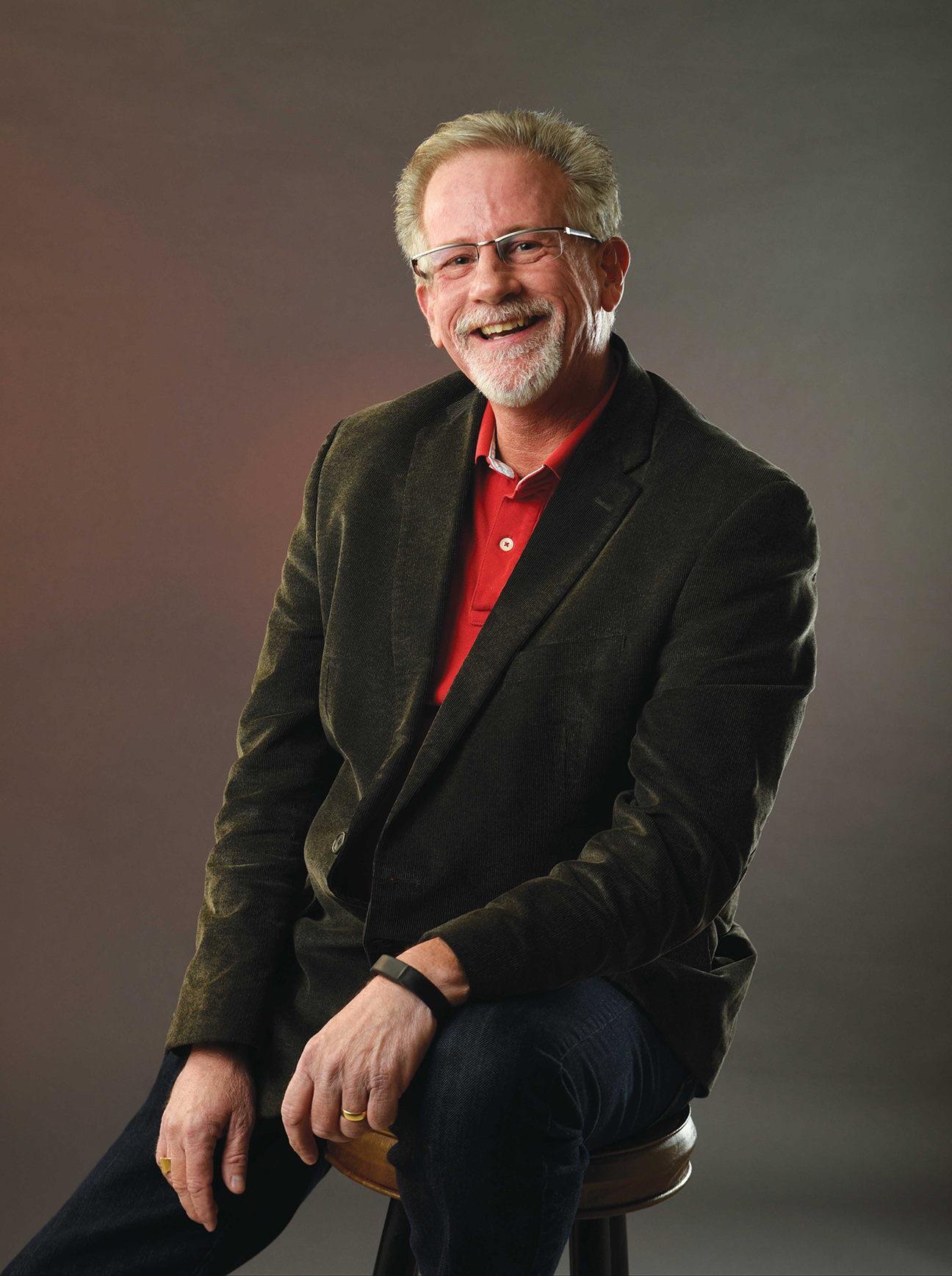Chik-fil-A
* Owner: Nick Goebeler* Started: 2013* Location: Brainerd Village shopping center on Brainerd Road* Words of wisdom: Find great people. Help them understand the reason behind the business. Get out of their way.
McDonald’s
* Owner: Jim Aaron* Started: 2014* Locations: Charleston, Decatur and Vonore, Tennessee* Words of wisdom: If you work hard and stay with McDonald’s, amazing things will happen
Burger King
* Owners: Gordon and Elliott Davenport, , organized as HomeTown Folks LLC* Started: Davenports bought the franchise in 2003* Locations: 19 stores in a 60-mile radius of Chattanooga* Words of wisdom: Hire good people and reward their success
The modern concept of franchising was created, experts agree, by Isaac Merrit Singer who, in the mid-1800s, invented the brand of sewing machine that still bears his name.
To speed up distribution and increase cash flow, Singer and his business partners created a network of sellers who paid an up-front licensing fee - the equivalent of today's franchise fee - and agreed to teach customers how to use the newfangled Singer sewing machines.
All these years later, franchising still thrives. The model has long been used in established industries ranging from hotels to rental cars to, of course, the fast food restaurant brands that make up the top five global franchisors.
As defined by the the International Franchising Association, franchising is a method of distributing products and services that involves a franchisor who lends a trademark and business system to a franchisee who, in return, pays a royalty for the right to use the franchisor's trademark and system.
Franchise businesses continue to grow at a faster pace than the rest of the economy, according to a study of franchising by the economic consulting firm of IHS Economics. The study found:
* Franchise businesses will have a 3.1 percent growth in jobs in 2016, adding 278,000 direct jobs to the economy for a total of 9.1 million.
* For the past five years, the average annual job growth in the franchise sector was 2.6 percent, nearly 20 percent higher than all businesses economy-wide. Over the last five years the franchising sector has added nearly one million jobs to the economy.
* The number of franchise establishments will grow this year by 13,359, or 1.7 percent, to 795,932.
* Sales by franchise businesses will increase this year by $52 billion, 5.8 percent, to $994 billion.
Franchise businesses continue to expand as new industries emerge. As recreational marijuana has been legalized in Colorado, Alaska, Oregon and Washington state, entrepreneurs have proposed franchises to capitalize on the "green rush."
The biggest franchisors remain in the fast-food industry, which accounts for the four biggest franchise businesses in the world.
Chick-fil-A's Goebeler: 'Best job around'
Nick Goebeler didn't start out to be a Chick-fil-A restaurant franchise owner.
A University of Georgia business school graduate, he started working for his brother, who operated a Chick-fil-A in Atlanta, right out of college to make some money.
"He had the best job around," Goebeler says he soon learned. "He was his own boss."
The 36-year-old owner of the Chick-fil-A eatery on Brainerd Road says he's now hopeful of eventually running a second restaurant in the Chattanooga area for the Atlanta-based chain.
"They want the franchises to be as close as possible," he says.
Goebeler opened the Brainerd Village shopping center unit three years ago and he's pleased with the growth of the business. One day in February, he says, the store served a record 280 customers from noon to 1 p.m.
Chick-fil-A typically serves about 2,000 customers a day, with 60 percent of them in the drive-thru.
"We pride ourselves as being the fastest in town," Goebeler says, noting it can handle about 150 cars an hour.
Goebeler worked for Chick-fil-A's corporate office for four years before he got the chance to be a franchise owner. He went around the country helping out in corporate-owned stores, traveling on a moment's notice.
"I proved I was capable of running my own franchise," he says, obtaining a store in Stone Mountain, Ga., at age 25 which he ran for about eight years.
But, with his wife from East Tennessee and him from Georgia, the opportunity for a store in Chattanooga opened up and he took it. He had to give up the Stone Mountain business because the company doesn't permit owners to have stores across state lines, Goebeler says.
"It's a growing town," he says about the Scenic City, adding that Chattanooga doesn't have as many of the restaurants as does Atlanta.
Goebeler says he has learned a lot about Chattanooga and the habits of his customers. His store sells more chicken nuggets than sandwiches, for example, which isn't the norm across the company.
The store's kitchen tries to stay ahead of demand in terms of food preparation, often looking at what the weather may be that day, he says.
"Our job is to predict the future," Goebeler says. "We're in the future business."
While $10,000 isn't as much money as many restaurant companies charge to get in a franchise, the competition is highly competitive at Chick-fil-A, Goebeler says. While there are thousands of applicants, the company only opens about 80 to 100 eateries a year, he says.
The restaurant, the franchise owner says is like "having a baby," adding that "they're 24 hours a day." But, he says, the eatery isn't his life.
"It fits into my lifestyle," he says, noting he has one small daughter and another child on the way.
McDonald's veteran brings Golden Arches to small town Tennessee
Jim Aaron is a McDonald's man, through and through. The new, local franchisee went to work for the Golden Arches as a high school student nearly 40 years ago, and stayed on as a full-time employee through four years of full-time course work at Berry College in Rome, Georgia.
Aaron now operates McDonald's stores in Charleston, Decatur and Vonore, Tennessee. He has been a McDonald's franchisee since April 2014, when at the age of 52 he opened his first stores.
McDonald's locates franchisees and generally requires a financial commitment of $5oo,000 from them to open a store. The amount of revenue given back to the corporate arm varies.
Aaron is a former McDonald's corporate executive, and spent 38 years with the company before going the franchising route. He has a bachelor's degree in business with a minor in accounting from Berry College in Rome, Ga.
Aaron found franchising appealing because it offered him the chance to own his own restaurants under the brand and company he loves and knows "like the back of his hand." He said McDonald's provides opportunities to give back to young store employees similar to how he got started in the business nearly four decades ago.
Aaron insists that opportunities given him as a young man were critical in his success, and he now relishes the opportunity to repay them by passing them on to a new generation of McDonald's employees. Aaron's McDonald's employees are offered health care if they work 20 hours or more a week, and are offered a 401K program with dollar-for-dollar matching contributions.
"Folks don't realize the significance of this brand and what potential, and what opportunities are there if you're willing to work hard and be diligent," Aaron says. "The benefits that McDonald's affords its people are amazing, really."
Aaron is now 54, poised to grow his company and enjoys a clean bill of health - despite eating McDonald's grub five or six times a week.
Life is about good choices, he says. Like choosing the Egg White Delight McMuffin and a Premium Southwest Salad with Grilled Chicken and becoming a McDonald's franchisee.
"It's been very good to me," he says.
Cousins use restaurant experience to grow Burger King franchise
As grandsons of one of founders of the South's oldest fast-food restaurant chain, cousins Gordon and Elliott Davenport have the restaurant business in their DNA.
Gordon worked for a decade in top marketing jobs at the Krystal Co., which his father and grandfather once headed, while Elliott helped manage and grow the Central Park chain of drive-through restaurants and later Buck's Barbeque. But after Krystal was sold in 1997 and Central Park was sold in 2000, the cousins were looking for new business options.
In 2003 during a family dinner with their wives, Gordon and Elliott decided to seize an opportunity to buy the Burger King restaurants available in the Chattanooga area from the Chicago-based franchise owner.
"I don't think I ever knew anything else," Elliott Davenport says ab0uut his work in the restaurant business.
To emphasize their local roots, the Davenports organized their business as HomeTown Folks, LLC.
"You have to pick the right brand and someone you think is established and be around for the long run," Gordon Davenport says of the decision to buy the Burger King franchise.
Over the past 13 years, the brand has proven its success under the Davenports' leadership. Burger King sales have nearly tripled in the Chattanooga area both by upgrading the 15 units the Davenports acquired in 2003 and through the addition of four other units, including the latest in Brainerd that opened late last year. HomeTown Folks plans to open yet another Burger King in 2016 but Davenport says they want to be "steady yet selective" in adding more units.
Sales at the typical HomeTown Folks Burger King rose from about $900,000 per unit in 2003 - about $100,000 below the nationwide average for all Burger Kings - to nearly $1.7 million per store last year, or nearly $400,000 above the average for all Burger Kings.
The results have surpassed initial expectations. Davenport says the key to success "is really pretty simple."
"We've invested back into the business by remodeling our restaurants and adding more units, but probably the biggest thing is we invest in our people," he says.
HomeTown Folks, which has more than 500 full- and part-time workers, offers five different bonus plans, including one that all workers are eligible to receive and is given based upon overall crew performance.
"Every month, Elliott and I hand out gift cards to anywhere from one to 300 employees," Gordon says. "We're very unique in having crew-level bonus programs, which have proven to be very popular and successful for us."
Restaurant workers are rewarded according to the speed and quality of their food delivery, which is continually monitored. The bonus program has been used as an example for other Burger King franchises, Davenport said.
"Our best stores, our friendliest employees and our best food are where the speed of service is best," Davenport says.
For all of his previous experience as head of marketing for Krystal, Gordon Davenport admits running your own restaurants "is more risky and hands on, but also far more rewarding."
"It's very different from being on the 10th floor of the Krystal building," says Gordon, who makes it a practice to rotate through every shift in every restaurant over the course of a year.
"With a franchise restaurant chain, you can focus on operating the business and not on the marketing or menu questions. Those key parts of the business are handled by very well-paid and expert folks who study the market closely and know best what people want and how to reach people to get them in your stores."

